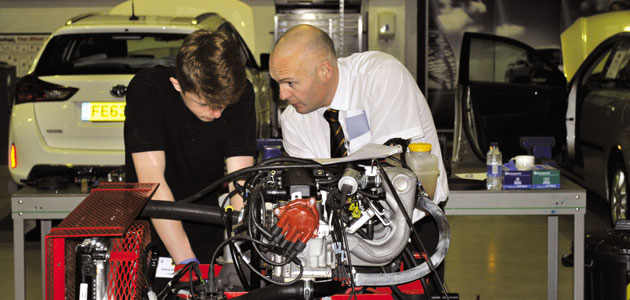
The first couple of weeks of February traditionally mark a critical point for those who’ve set themselves targets for the year ahead, as statistics show that over 60% of ‘New Year’s Resolutions’ will be broken by this stage.
If your annual vow of improvement is still on course then congratulations for reaching this significant milestone and long may it continue. If you didn’t quite make it past the first hurdle then – as suggested by the figure above – you’re likely to be in plentiful company.
Although most resolutions reflect a willingness to change certain aspects of one’s personal life, professional progression is also found high on the list of objectives of many individuals, with most looking to advance their earning potential or increase their skill-set in order to maximise future opportunities to further their career.
In most industries a willingness to train and increase your capabilities as a professional – alongside your day job – would stand you aside from the rest of the crowd. Yet in the independent service/repair trade this approach to professional development is simply a prerequisite should you wish to continue to keep up with the changes in vehicle technology and perform even the most basic of tasks on modern cars to a competent level.
As tough as this pill may be to swallow for some technicians up and down the country, the stark reality is – as stated on countless occasions on these pages – if you fail to recognise that the job description of today’s aspiring automotive technician now includes ‘a positive attitude towards continuous learning’ then its perhaps time to prepare yourself for a new vocation.
Changes are afoot, not least in the form of a new voluntary ‘Professional Register’ from the IMI which, from April this year, will allow the paying public to identify those technicians who’ve proved they’re qualified to a minimum level of competency. Should this initiative – which is the closest thing we currently have to statutory technician licensing – catch fire with the general consumer then those technicians/businesses left off the list could find themselves further plunged into the abyss.
Of further interest, PMM recently met with the IMI and discovered that physical training courses and e-learning are not the only criteria that contribute towards the organisation’s CPD (Continuous Professional Development) programme. Credits can be awarded for any activity a technician partakes in that has ultimately assisted them in improving their skills and understanding – as long as this can be proven to have been successfully implemented in their work.
Even by picking up and reading your monthly copy of PMM or visiting PMM Online, you could be totting up CPD credits without even knowing about it and, more importantly, without this even being formally acknowledged on your professional record. If you’ve taken the time, no matter how long, to improve your learning then it seems crazy for you to undersell that.
Training aids to suit every individual circumstance are out there for you and most of the time – like in the case of our regional MechanEx shows and the many factor/supplier evenings on offer throughout the year – they cost you nothing apart from time and willing! As the IMI have proved, a little bit of effort can go a long way towards improving your own professional portfolio.
PMM therefore has two ‘resolutions’ that it would like our readers to stick to in 2013: the first is to continue to strive to be better; while the second is to shout about it when you have.
The industry is stepping up its efforts to publicly distinguish the best from the rest. The question is, which category do you want to fall into?









